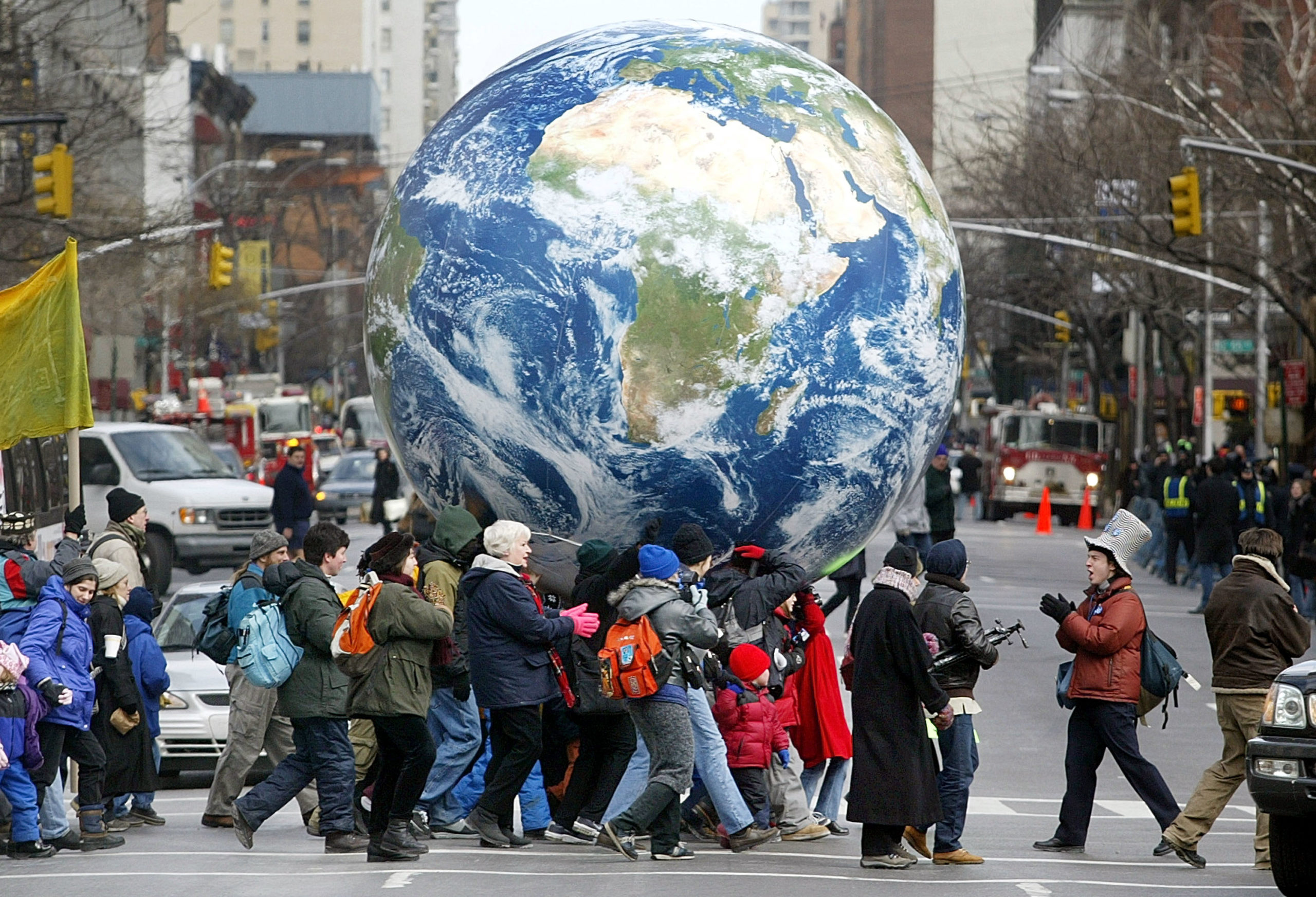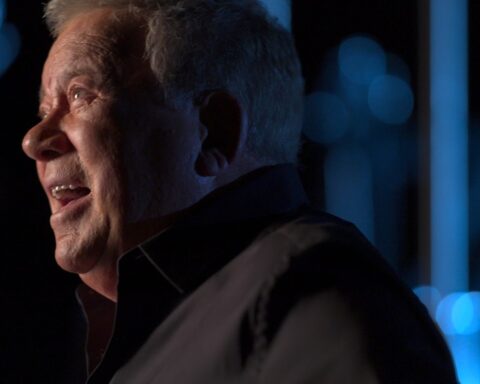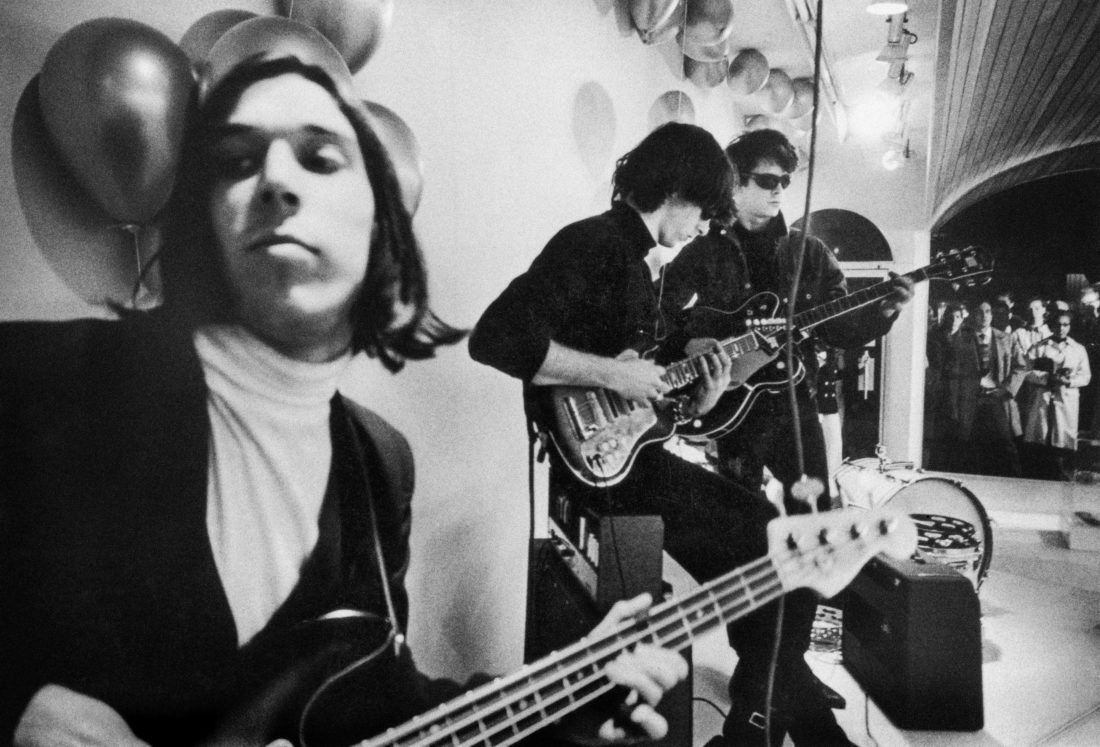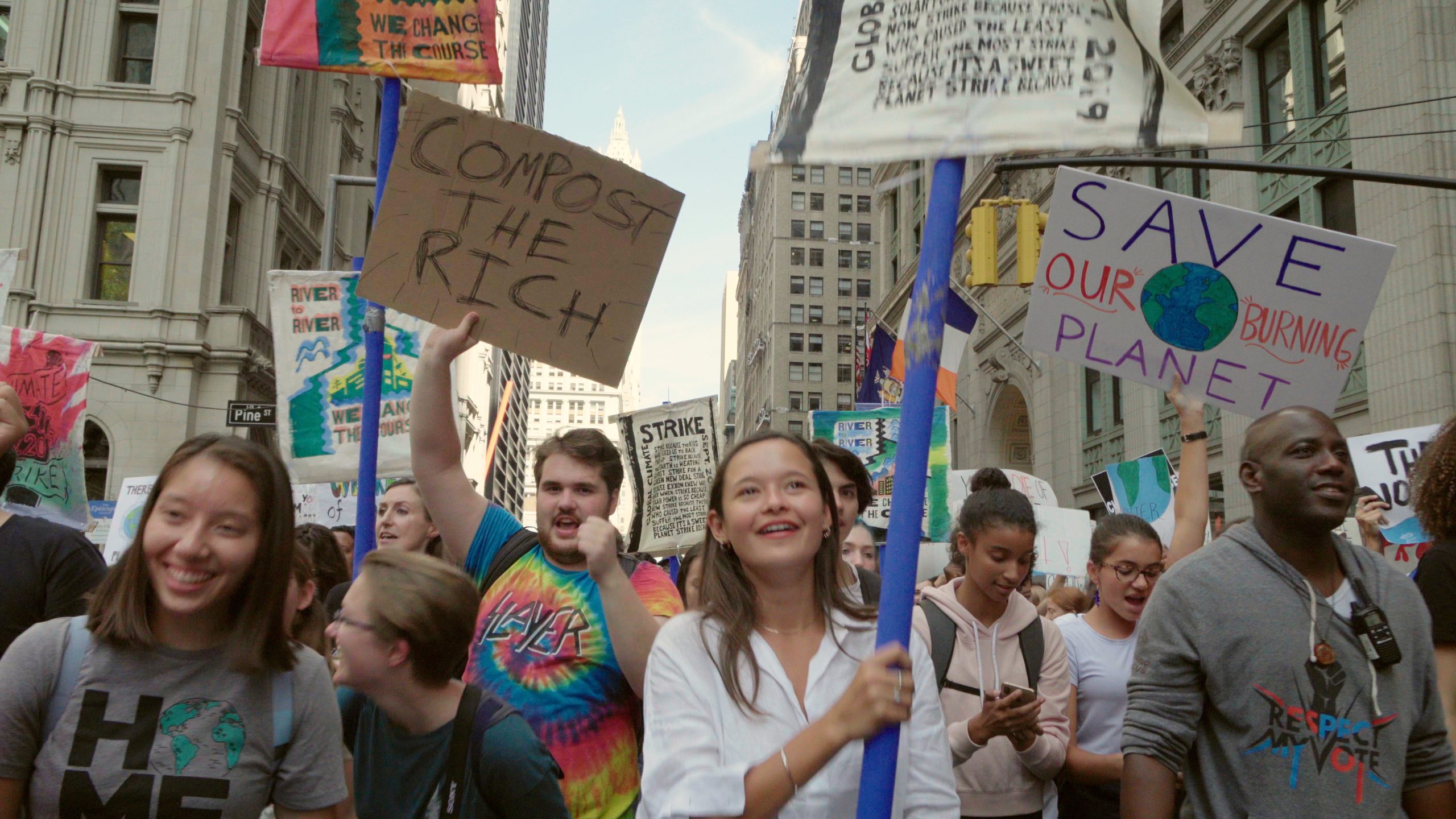The power of the people resonates strongly in We Are Many. This long gestating—and long shelved—doc from director Amir Amirani chronicles the global protests against the USA’s invasion of Iraq. We Are Many chronicles the lead-up to the fateful day of February 15, 2003 when approximately 30 million people worldwide joined their voices in a resounding anti-war protest. The doc offers perspectives from many participants who rallied for change and found the world to be ruled by two different and, sadly, seemingly opposite powers: the will of the rulers and the will of the people who elected them.
We Are Many begins its virtual release a whopping seven years after premiering at Sheffield Doc Fest in 2014, which was preceded by a nine-year production, Amirani’s film is obviously a labour of love. The gestation period inevitably leaves some elements of the film, notably the final act, someone dated, but We Are Many ultimately embodies a timeless spirit of democratic power. Moreover, the challenges Amirani encountered while making the film and getting it to audiences speak to the encounters between the power of the protesters and the ears that were deaf to their words. While celebrating the spirit of activism that can unite people worldwide, the film also tragically reminds audiences that collective will power can easily be trumped by a powerful few.
The film begins by examining the fallout of September 11, 2001. In a strikingly provocative statement, interviewee Colleen Kelly, founding member of the organization September 11th Families for Peaceful Tomorrows, says that 9/11 wasn’t the day that changed the world—September 12th was. Amirani offers an impressive range of interviewees who reflect upon US President George W. Bush’s immediate reaction to meet fire with fire, and how the sympathy for America post-9/11 enabled an illegal war in Iraq. These arguments aren’t new, but Amirani collects some valuable perspectives from people like Lawrence Wilkerson, who served as the Chief of Staff for Former Secretary of State Colin Powell while the USA invaded Iraq. The bogus reports about “weapons of mass destruction,” the media spin about an “axis of evil,” and the partnership between Bush and British Prime Minister Tony Blair remind audiences how the superpowers of the USA and UK barrelled headfirst into an illegal war regardless of the evidence or public opinion.
The interviewees, which range from Dr. Hans Blix, the former UN Weapons Inspector, to former Birmingham city councillor Salma Yaqoob, to celebrities like filmmaker Ken Loach, author John LeCarré, and actors Mark Rylance and Danny Glover, along with ordinary people from around the world, explain how public pressure swelled and organized in a show of solidarity on February 15. The images of the protests are extraordinary as footage from around the world shows the biggest global peacetime protest. The streets of Madrid are full with the likes of Pedro Almodóvar and Javier Bardem leading the charge, while London unites 1.5 million proteseors as Tony Blair dismisses them from afar. The protests even reach Antarctica where researchers sacrificed their jobs in the name of world peace. We Are Many powerfully shows how the world gave a resounding opposition to the invasion of Iraq, but Bush soldiered on anyway.
We Are Many somewhat bursts its own bubble while recounting the events as they happened. The protests are a compelling show of democracy in action. The images are inspiring. However, the film doesn’t confront the false hope of protest, and instead looks to the opposition to the civil war in Syria as a belated victory for the anti-Iraq war protesters. Amirani and the talking heads celebrate the fact that the American government, under the new and more progressive leadership of the Obama administration, followed the Brits’ lead by listening to the will of the people, allowing democracy to guide the course of action, and opting against going to war. What the film doesn’t acknowledge, however, are the devastating losses that people in Syria faced, the US-led “intervention” in 2014, and the ensuing global migration crisis, among other tragedies. Spinning Syria as a win for western protesters is an awkward flex.
The doc also changes gears in its final act with a forceful argument that Bush, Blair, and many of their collaborators should be tried as war criminals. That’s all fair—and probably true—but the film loses sight of the fact that the protests of February 15, 2003 anticipated another decade of large-scale mobilization that saw mixed results with the Occupy Movement and Arab Spring, along with more successful events like the women’s marches and Black Lives Matter protests. Admittedly, many of these events followed the film’s premiere, but We Are Many might be more powerful if it kept its eye on the protests and used the time that it spent sitting on the shelf to convey its argument even more forcefully. As a snapshot of one day that inspired a global awakening, however, it should provide fuel to mobilize impassioned activists.
We Are Many is now available on VOD/Digital.














